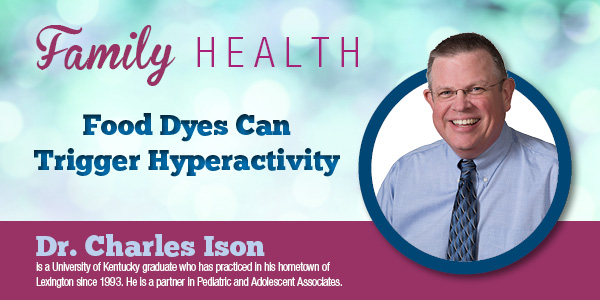Food Dyes Can Trigger Hyperactivity
Artificial food dyes are found in many of the foods that we eat and drink.
They are manufactured chemicals that, by coloring foods and beverages, make them look more appealing to us.
These dyes are also used to preserve the colors of certain foods or to make them look consistently the same across many batches.
For several years, some researchers have wondered if they might trigger hyperactivity, or even AD/HD (attention deficit/hyperactivity disorder), in children.
Pediatrician Benjamin Feingold in the 1970s published findings that suggested there was a link between artificial food dyes and AD/HD.
Other studies done afterward mainly looked at hyperactivity as an effect of these dyes. Many were done before we understood that AD/HD was basically an inherited disorder that can have hyperactivity as a symptom.
A more recent study done in the U.K. looked at the effect of certain artificial food dyes on 3-year-olds and 8-year-olds.
Compared to placebo, there seemed to be some increase in hyperactivity, especially in the latter group.
Foods containing artificial dyes are now labeled with the warning that the artificial dyes that these foods contain could cause hyperactivity in children.
Some studies show that eliminating foods with artificial dyes in them may decrease hyperactivity in those children who are known to have AD/HD.
This could be because foods containing artificial dyes are processed and tend to be less healthy in general. Improving nutrition may help improve symptoms of AD/HD in children in and of itself.
Foods colored with artificial dyes, especially beverages, also often have quite a bit of sugar (or high fructose corn syrup) in them.
The spike in blood sugar that happens when children consume these may be what is leading to the observed hyperactive behavior.
The Food and Drug Administration, which regulates artificial dyes in the U.S., tries to determine any effects on health, how safe they are, and how much can be safely consumed.
While more research is needed to give a more definitive answer, the FDA has found that some children with AD/HD may be potentially sensitive them.
Foods colored by artificial dyes are widely consumed in the U.S.
Even if only a certain subset of children may be affected by them, it would be good for those children (and those around them) to know if something they are about to consume may trigger hyperactive behavior.

